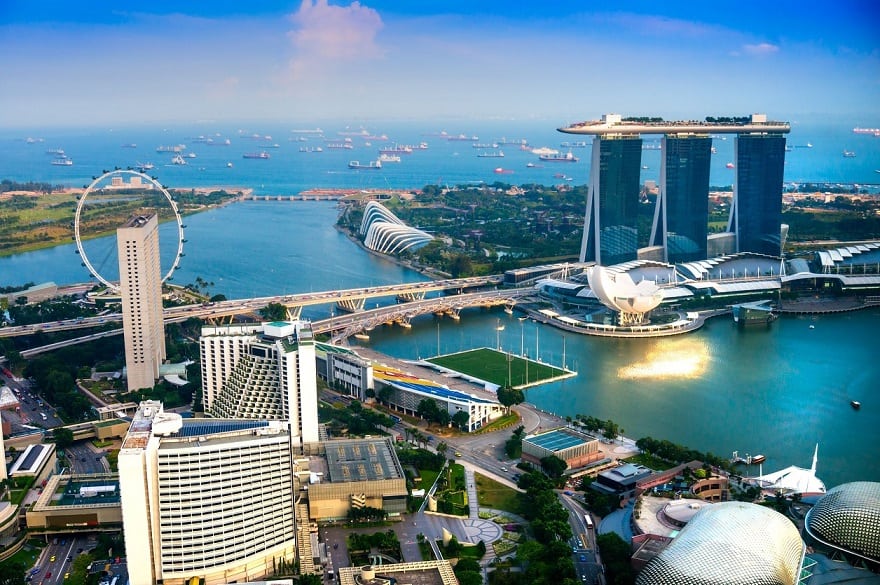
Singapore boosts its support for startups
At the crossroads between East and West and the centre of Asia, Singapore is a natural location to start and build a business.
Government support and encouragement of the startup sector has always been strong: between 2012 and last year, Singapore moved up seven places to 10th in an international ranking of start-up ecosystems.
The ‘Little Red Dot’ often serves as a springboard for companies entering the region. Its Prime Minister has emphasised his desire to encourage technology leaders and innovators to use Singapore as a breeding ground for new developments which can be scaled up, adapted to new situations, and exported.
Always a hub for foreign-invested entrepreneurs and startups, Singapore has recently announced several new policy initiatives to enhance its position as a place which small businesses can call home.
Trade and Industry Minister Dr. Koh Poh Koon has commented: “rising global protectionist sentiments present us with the opportunity to position Singapore as an attractive startup location for global talent. Foreign entrepreneurs have the capacity to add to the vibrancy of our startup scene.”
Foreign investment
Singapore’s strengths are well-recognised by the foreign business community. This month Australia launched a startup incubator with support from SGInnovate, a local government investment unit established at the end of last year to connect entrepreneurs with industry mentors, venture capitalists and research talent.
Launching the incubator, Australian Minister of Foreign Affairs Julie Bishop said “Singapore is a gateway into Asia: speaking to a number of Australians here, they’ve certainly reinforced that Singapore is a great place for collaboration and for attracting the necessary capital.”
Australia’s partnership is one of many initiatives planned to attract foreign businesses. Singapore’s Minister for Trade and Industry reiterated this month that “international connections are critical to facilitating innovation and supporting Singapore’s startup ecosystem. Innovation is and will continue to be a key driver of Singapore’s economic growth.”
Policy initiatives
Singapore’s ‘Committee for the Future Economy’ (picture that in a Western country?) was established in 2016 and released its report in February. Comprising government ministers, local and expat businesspeople (from major multinationals to entrepreneurs) and consultants, its aim was to position Singapore for the future and to identify areas of growth, opportunities and challenges for the city-state.
The committee calls for a new Global Innovation Alliance (GIA) in Singapore to create more opportunities for startups and foster international link-ups, serving as a ‘welcome centre’ for foreign businesses to collaborate with local enterprises and institutions. The GIA will set up ‘innovation launchpads’ for Singaporeans and foreign startups to work together, with the city’s world-leading universities helping to create research and entrepreneurship hubs.
Other initiatives announced this month include building on Singapore’s ‘EntrePass’, a visa system set up to encourage international entrepreneurs to start businesses in Singapore. Announcing the changes, Trade and Industry Minister Dr. Koh said they would “further enhance the scheme and create a more conducive environment for global talent keen to establish innovative businesses here”. These initiatives include:
- Removing the previous requirement for startups to have S$50,000 (US$35,000) in paid-up capital, significantly reducing the cost of establishing a business and allowing earlier-stage companies to establish themselves in the city
- Providing EntrePass recipients and their families with two-year visa renewals, compared with the current length of one year
- Broadening the criteria for entrepreneurs with an established track record to set up in Singapore.
Funding assistance for startups
Singapore’s direct funding support for startup companies is well-known, from tax breaks to grants and co-investment (although these schemes have been tightened up – the Government doesn’t simply hand out golden eggs as is sometimes believed).
Recent regulatory changes have been implemented to further improve the environment for startups and SMEs. On the funding side, the Government announced in February that is considering loosening regulations for VC firms to open up financing for startups. Singapore is already home to 153 VCs, and in 2016 saw a record US$3.5 billion in PE / VC investments, up from US$2.2 billion the previous year (Duff & Phelps estimates).
Building on this, there is a new focus on specific sectors including ‘deep-tech’ (truly unique technology – think AI or VR). The Government will now provide deep-tech startups with co-investment of up to SG$4 million (double the previous figure), which can now represent 70% of total funding, up from 50%.
Your Financial Business Partner in Singapore
Stepping Stone was founded in Singapore to focus on foreign-invested SMEs and startup businesses. Our services include company incorporation and setup, assistance with employment passes and opening bank accounts (an increasingly onerous process), accounting, advice on available grant funding, and raising VC or private equity investment.
We can help you start your business, scale it up, expand into new markets, and assist with business planning, analysis and implementation. With offices across Asia, Stepping Stone’s senior staff bring international backgrounds as CFOs (with multinationals, SMEs and startups) and as specialists in areas such as tax and corporate finance.
As your business grows we can assist you to raise capital, bringing our experience as investors as well as advisors: through Stepping Stone Capital we have made direct investments into a number of SMEs and entrepreneurial companies.
Our systemised investment methodology helps ensure you are fully investor-ready, and we can take you through to negotiating and closing the most appropriate grant or investor funding.
Click here to learn more about how Stepping Stone can help you establish and build your business.



